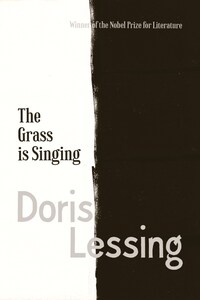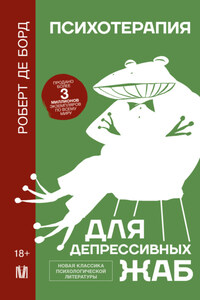Doris Lessing
The Grass is Singing
This novel is entirely a work of fiction. The names, characters and incidents portrayed in it are the work of the author’s imagination. Any resemblance to actual persons, living or dead, events or localities is entirely coincidental.
Fourth Estate
An imprint of HarperCollinsPublishers Ltd. 1 London Bridge Street London SE1 9GF
www.harpercollins.co.uk
Previously published in paperback by Grafton 1980, Paladin 1989, as a Flamingo Modern Classic 1994 (reprinted 9 times), and as a Harper Perennial Modern Classic 2007 (reprinted 9 times)
First published in Great Britain by Michael Joseph Ltd in 1950
Copyright © Doris Lessing 1950
Doris Lessing asserts the moral right to be identified as the author of this work
A catalogue record for this book is available from the British Library
All rights reserved under International and Pan-American Copyright Conventions. By payment of the required fees, you have been granted the non-exclusive, non-transferable right to access and read the text of this ebook on screen. No part of this text may be reproduced, transmitted, downloaded, decompiled, reverse engineered, or stored in or introduced into any information storage and retrieval system, in any form or by any means, whether electronic or mechanical, now known or hereinafter invented, without the express written permission of HarperCollins ebooks
HarperCollinsPublishers has made every reasonable effort to ensure that any picture content and written content in this ebook has been included or removed in accordance with the contractual and technological constraints in operation at the time of publication
Source ISBN: 9780586089248
Ebook Edition © JANUARY 2012 ISBN: 9780007386307 Version: 2016-10-21
To Mrs GLADYS MAASDORP of Southern Rhodesia for whom I feel the greatest affection and admiration
In this decayed hole among the mountains
In the faint moonlight, the grass is singing
Over the tumbled graves, about the chapel
There is the empty chapel, only the wind’s home.
It has no windows, and the door swings,
Dry bones can harm no one.
Only a cock stood on the rooftree
Co co rico, co co rico
In a flash of lightning. Then a damp gust
Bringing rain
Ganga was sunken, and the limp leaves
Waited for rain, while the black clouds
Gathered far distant, over Himavant.
The jungle crouched, humped in silence.
Then spoke the thunder
From The Waste Land by T. S. ELIOT with grateful acknowledgements to the author and to Messrs Faber & Faber
‘It is by the failures and misfits of a civilization that one can best judge its weaknesses.’
AUTHOR UNKNOWN
1
MURDER MYSTERY
By Special Correspondent
Mary Turner, wife of Richard Turner, a farmer at Ngesi, was found murdered on the front verandah of their homestead yesterday morning. The houseboy, who has been arrested, has confessed to the crime. No motive has been discovered.
It is thought he was in search of valuables.
The newspaper did not say much. People all over the country must have glanced at the paragraph with its sensational heading and felt a little spurt of anger mingled with what was almost satisfaction, as if some belief had been confirmed, as if something had happened which could only have been expected. When natives steal, murder or rape, that is the feeling white people have.
And then they turned the page to something else.
But the people in ‘the district’ who knew the Turners, either by sight, or from gossiping about them for so many years, did not turn the page so quickly. Many must have snipped out the paragraph, put it among old letters, or between the pages of a book, keeping it perhaps as an omen or a warning, glancing at the yellowing piece of paper with closed, secretive faces. For they did not discuss the murder; that was the most extraordinary thing about it. It was as if they had a sixth sense which told them everything there was to be known, although the three people in a position to explain the facts said nothing. The murder was simply not discussed. ‘A bad business,’ someone would remark; and the faces of the people round about would put on that reserved and guarded look. ‘A very bad business,’ came the reply – and that was the end of it. There was, it seemed, a tacit agreement that the Turner case should not be given undue publicity by gossip. Yet it was a farming district, where those isolated white families met only very occasionally, hungry for contact with their own kind, to talk and discuss and pull to pieces, all speaking at once, making the most of an hour or so’s companionship before returning to their farms where they saw only their own faces and the faces of their black servants for weeks on end. Normally that murder would have been discussed for months; people would have been positively grateful for something to talk about.
To an outsider it would seem perhaps as if the energetic Charlie Slatter had travelled from farm to farm over the district telling people to keep quiet; but that was something that would have never have occurred to him. The steps he took (and he made not one mistake) were taken apparently instinctively and without conscious planning. The most interesting thing about the whole affair was this silent, unconscious agreement. Everyone behaved like a flock of birds who communicate – or so it seems – by means of a kind of telepathy.














